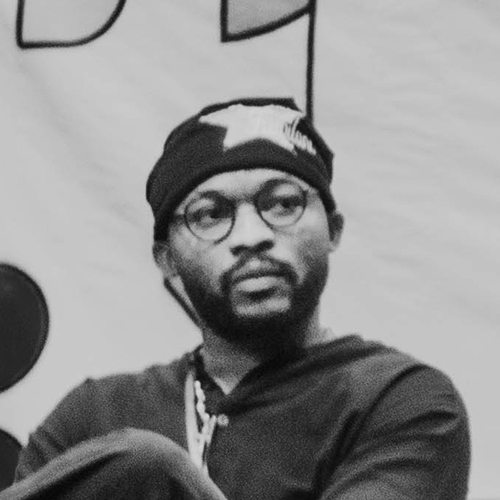it begins with fatigue.
not in the body, but in the mind.
the kind of fatigue that sets in after years of hearing too much and understanding too little.
the kind that creeps up when nothing changes, when promises pile up like expired prescriptions, when language becomes a thing politicians use to decorate emptiness.
people grow tired of nuance. tired of process. tired of explanations.
they don’t want truth anymore. they want clarity.
and that’s where the demagogue enters. not as a villain. not as an outsider. but as an answer.
not the right answer. not even a real one.
just the kind that feels good in the moment.
he doesn’t need facts. he needs rhythm.
he doesn’t need integrity. he needs volume.
he doesn’t need to be correct. he just needs to be sure.
the people, by then, are not looking for leadership. they are looking for relief.
and the demagogue knows this.
he senses the weight in the room and offers a shortcut.
he packages rage and pain and nostalgia and hands it back to the people as policy.
he doesn’t ask for trust—he demands belief.
and belief, when untethered from scrutiny, is a very dangerous thing.
but here’s the real danger: he doesn’t rise alone.
the crowd builds him.
slowly. thoughtlessly.
with every shrug of “at least he’s doing something.”
with every deflection of “they’re all the same anyway.”
with every silence after a lie.
with every cheer for simplicity.
with every blind eye turned toward complexity because it takes too much effort to care.
this is not about any one man.
you want me to name names so you can outsource the blame.
but demagoguery is not about the speaker. it’s about the crowd that craves him.
we create the demagogue every time we trade understanding for emotional validation.
we summon him when we lose interest in cause and become obsessed with consequence.
we give him our platform, our faith, and our applause—not because he earned it, but because he said what we felt in a way we could finally chant.
this is how reason dies.
not with silence, but with roars.
we talk about misinformation, manipulation, fake news—things that distort reality.
but we rarely talk about how easy it is to be manipulated when you’ve already stopped thinking.
demagoguery doesn’t start with lies. it starts with a crowd that no longer wants the truth to be complicated.
and maybe you think you’re safe because you read. because you watch the right content. because you don’t shout on the street.
but the demagogue doesn’t need you to shout. he only needs you to sit still when it matters. to rationalize when he oversteps. to lower your standards just enough to say: “well, at least he’s better than the last.”
he doesn’t need your loyalty. he just needs your indifference.
the rest, the noise, the fire—he can generate on his own.
what frightens me isn’t the rise of a new kind of leader.
it’s the death of a certain kind of citizen.
the kind that pauses before clapping.
the kind that reads the fine print.
the kind that remembers history.
the kind that’s okay with not being entertained.
the kind that isn’t afraid to ask, how do i know what i know?
epistemology is not philosophy for the shelves. it’s survival.
because once you lose the thread of how you come to believe things, anyone can rewrite your values and hand them back to you with a new headline.
and maybe you think this is about nigeria. maybe you think it’s about your president. your governor. your senator.
but demagoguery is not a nationality. it’s not a region. it’s a human weakness. it’s what happens when people want to feel good more than they want to be right.
look at every empire that fell.
it didn’t start with a warlord.
it started with applause.
a tired people. a charismatic man.
a vague promise.
a shared enemy.
and the collapse of critical thought.
we’ve seen this before.
the names change. the costumes change. but the script is ancient.
and still, every generation thinks they’re the exception.
they think they can have it both ways: a strong man and a free state.
emotion-driven leadership and rational governance.
mass appeal and institutional integrity.
they think they can shout their way into justice.
but the truth is quieter.
and the truth rarely wins elections.
the demagogue always has the better story.
he speaks in plot twists, not policy.
he offers belonging without introspection.
and that is why he wins.
not because he is brilliant.
but because we have stopped asking questions.
we assume, retweet, nod.
we follow the man who speaks our anger, even if he misuses it.
we defend him because his enemies annoy us.
we make excuses for him because his failures feel familiar.
and slowly, we forget how to think outside his frame.
this is the real tragedy: not that one man has too much power,
but that millions have surrendered their ability to recognize when power is being abused.
so no, i will not give you a name.
because the name is irrelevant.
what matters is whether you see yourself in this crowd.
what matters is whether you’ve already clapped too many times without knowing why.
what matters is whether you still remember what it feels like to think alone—without needing your side to agree with you.
the demagogue will always rise.
but he only wins when thinking becomes uncomfortable.
when doubt becomes elitism.
when silence becomes loyalty.
when cheering becomes more important than checking.
so if you’re clapping, pause.
if you’re sure, reflect.
and if you’re angry at this, good.
maybe you’re still alive.
not everything loud deserves an audience.
ekene dili chukwu.
